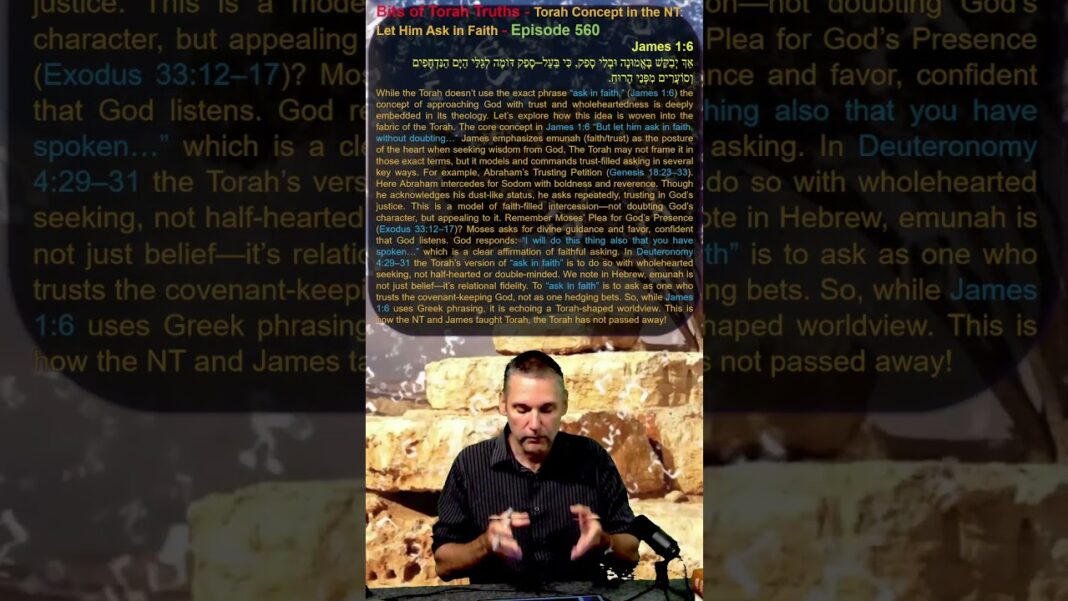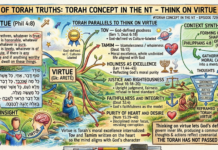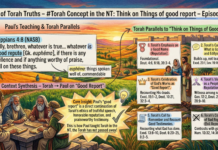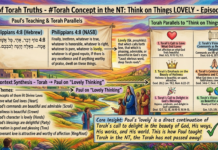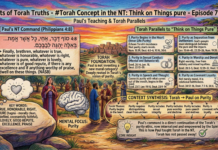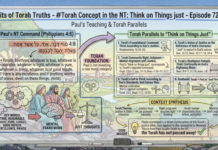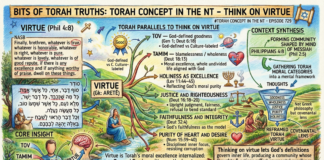Bits of Torah Truths – Torah Concept in the NT: Let Him Ask in Faith – Episode 560
James 1:6
אַךְ יְבַקֵּשׁ בֶּאֱמוּנָה וּבְלִי סָפֵק, כִּי בַּעַל–סָפֵק דּוֹמֶה לְגַלֵּי הַיָּם הַנִּדְחָפִים וְסוֹעֲרִים מִפְּנֵי הָרוּחַ.
#torah #torahwisdom #torahtruth #torahforlife #torah4you #torahtruth
James 1:6
1:6 But he must ask in faith without any doubting, for the one who doubts is like the surf of the sea, driven and tossed by the wind. (NASB)
https://www.matsati.com/index.php/category/bits-of-torah-truths/
While the Torah doesn’t use the exact phrase “ask in faith,” (James 1:6) the concept of approaching God with trust and wholeheartedness is deeply embedded in its theology. Let’s explore how this idea is woven into the fabric of the Torah. The core concept in James 1:6 “But let him ask in faith, without doubting…” James emphasizes emunah (faith/trust) as the posture of the heart when seeking wisdom from God. The Torah may not frame it in those exact terms, but it models and commands trust-filled asking in several key ways. For example, Abraham’s Trusting Petition (Genesis 18:23–33). Here Abraham intercedes for Sodom with boldness and reverence. Though he acknowledges his dust-like status, he asks repeatedly, trusting in God’s justice. This is a model of faith-filled intercession—not doubting God’s character, but appealing to it. Remember Moses’ Plea for God’s Presence (Exodus 33:12–17)? Moses asks for divine guidance and favor, confident that God listens. God responds: “I will do this thing also that you have spoken…” which is a clear affirmation of faithful asking. In Deuteronomy 4:29–31 the Torah’s version of “ask in faith” is to do so with wholehearted seeking, not half-hearted or double-minded. We note in Hebrew, emunah is not just belief—it’s relational fidelity. To “ask in faith” is to ask as one who trusts the covenant-keeping God, not as one hedging bets. So, while James 1:6 uses Greek phrasing, it is echoing a Torah-shaped worldview. This is how the NT and James taught Torah; the Torah has not passed away!
